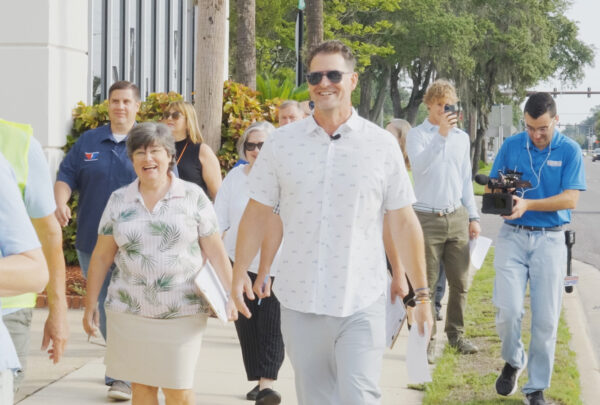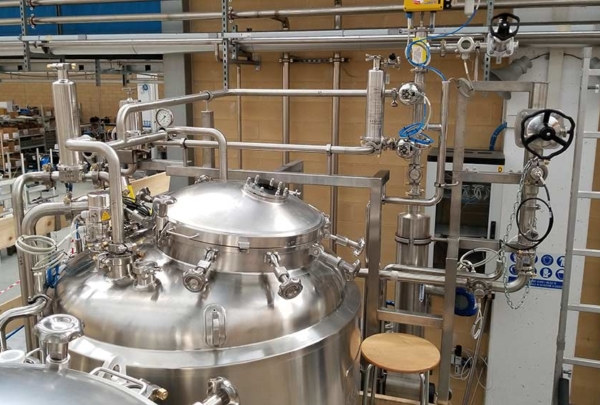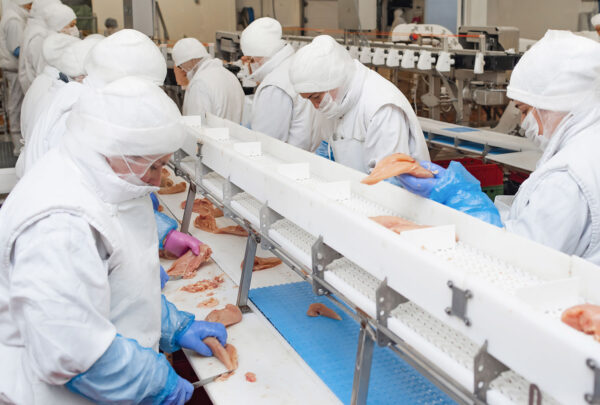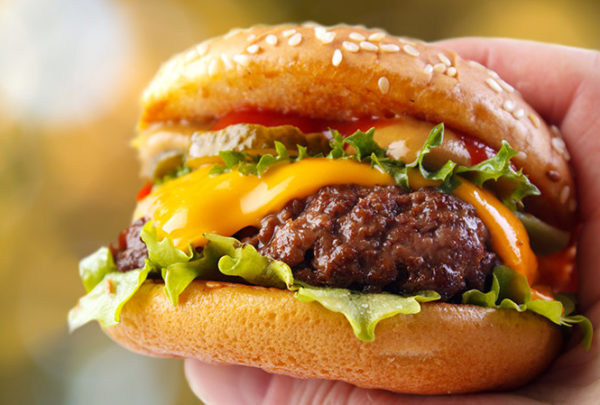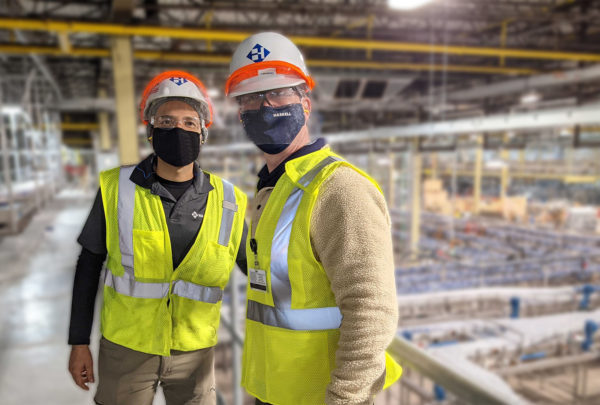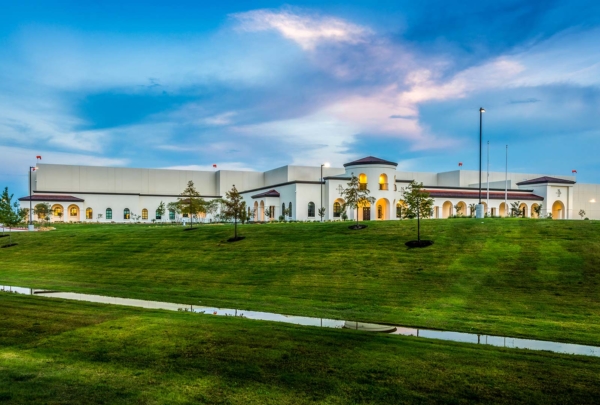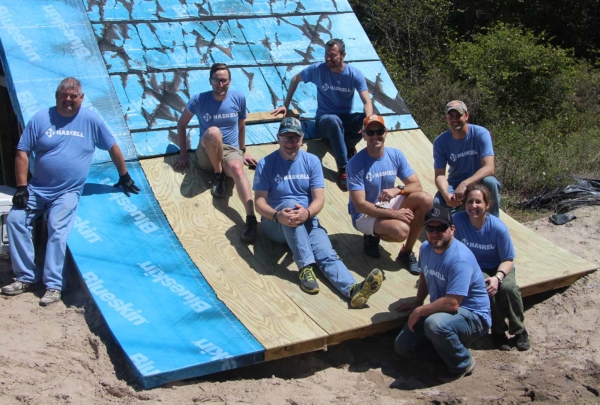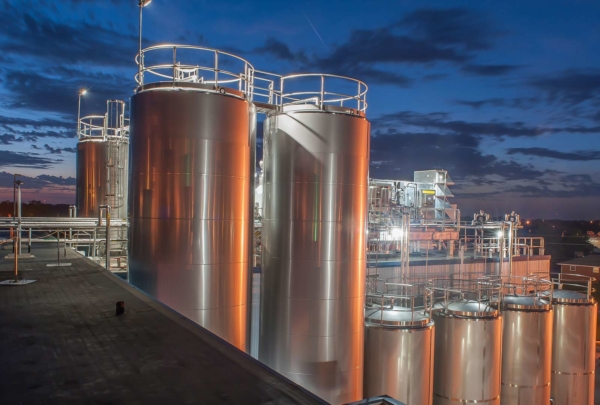Every year, the annual meeting of the International Association for Food Protection (IAFP) is a convergence of global experts, professionals, and enthusiasts passionate about food safety, showcasing current and emerging food safety issues.
As is no doubt the case in 2023 across virtually all industries, the expansion and accessibility of artificial intelligence (AI) dominated the themes of this year’s IAFP event in Toronto, Ontario, Canada.
As Director of Food Safety, I represented Haskell at the event, which brought together more than 3,000 food safety professionals from over 50 countries. Here are a few of my key takeaways:
Precision Agriculture – Starting in the Field
Precision agriculture is redefining how we approach pest management in the food and beverage industry. In trial plots with robots performing targeted spraying on weeds or insects, producers are seeing up to a 20x reduction in herbicide usage. Among the benefits are substantial reductions in costs, environmental impact and potential health risks. Additionally, robotic systems can be employed for inspections, harvests, and even pollination, mitigating the challenges faced by declining bee populations.
Precision Quality Control – Into the Production Facility
Quality control is at the heart of food safety, and precision technology is now enhancing this crucial aspect. Integration of ultraviolet (UV) technology and biometric scanning are allowing precise monitoring of handwashing compliance and performance. This not only ensures optimal hygiene standards but also immediate feedback to the employee. Clean-In-Place (CIP) sanitation is also experiencing the benefits of AI technology. Self-optimizing CIP (SOCIP) is a new approach to cleaning tanks, and line circuits are based on monitored parameters, as opposed to a single program. Industries utilizing this SOCIP approach can potentially reduce resources by 20 to 40% and minimize downtime due to cleaning.
Robotics Now, Machine Learning Next
Interfacing with the robotics field already has streamlined processes and reduced labor requirements. Integrating sensors with sophisticated algorithms has given rise to Artificial Intelligence (AI), with the next step being Machine Learning. While AI is already enhancing various aspects of the industry, we are yet to fully explore its potential in applications related to food safety.
Synthetic Data Modeling
The concept of synthetic data modeling has found its way into food safety applications. Continued Development of the EnABLe (Environmental monitoring with an Agent-Based Model of Listeria) simulation identification of the path of listeria movement through a facility, allowing evaluation of different personnel flowpaths to minimize exposure.
In a more of a production-related application, Frito Lay developed and tested the formulations and equipment to create a new Cheetos product before making significant capital investment in the product line. This approach not only expedites product development but also minimizes the risk associated with launching new products.
This is an exciting time in the food safety space, and Haskell takes pride in keeping our clients on the forefront of science and technology. With the global food and beverage industry continuously expanding, our multidisciplinary teams are dedicated to designing and implementing innovative solutions. From harnessing precision agriculture to integrating cutting-edge robotics, we strive to elevate food safety standards worldwide.
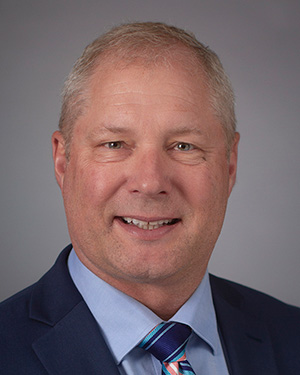 About the Author: After two decades of operational experience in food and beverage production facilities, Greg Janzow shifted directions and applied his accumulated expertise on the food safety realm. He joined Haskell as Director of Food Safety in 2021 and leads a multidisciplinary team that ensures clients’ food and beverage processing facilities meet the highest safety standards. He is a Certified Food Scientist, has a Bachelor of Science in Chemistry from Texas A&M and a Master of Business Administration from Strayer University. He can be reached at greg.janzow@haskell.com.
About the Author: After two decades of operational experience in food and beverage production facilities, Greg Janzow shifted directions and applied his accumulated expertise on the food safety realm. He joined Haskell as Director of Food Safety in 2021 and leads a multidisciplinary team that ensures clients’ food and beverage processing facilities meet the highest safety standards. He is a Certified Food Scientist, has a Bachelor of Science in Chemistry from Texas A&M and a Master of Business Administration from Strayer University. He can be reached at greg.janzow@haskell.com.
Haskell’s subject matter experts in healthcare design, construction and consulting are the best in the industry. Contact us to discuss your system’s facility needs.

 About the Author: After two decades of operational experience in food and beverage production facilities, Greg Janzow shifted directions and applied his accumulated expertise on the food safety realm. He joined Haskell as Director of Food Safety in 2021 and leads a multidisciplinary team that ensures clients’ food and beverage processing facilities meet the highest safety standards. He is a Certified Food Scientist, has a Bachelor of Science in Chemistry from Texas A&M and a Master of Business Administration from Strayer University. He can be reached at
About the Author: After two decades of operational experience in food and beverage production facilities, Greg Janzow shifted directions and applied his accumulated expertise on the food safety realm. He joined Haskell as Director of Food Safety in 2021 and leads a multidisciplinary team that ensures clients’ food and beverage processing facilities meet the highest safety standards. He is a Certified Food Scientist, has a Bachelor of Science in Chemistry from Texas A&M and a Master of Business Administration from Strayer University. He can be reached at 
